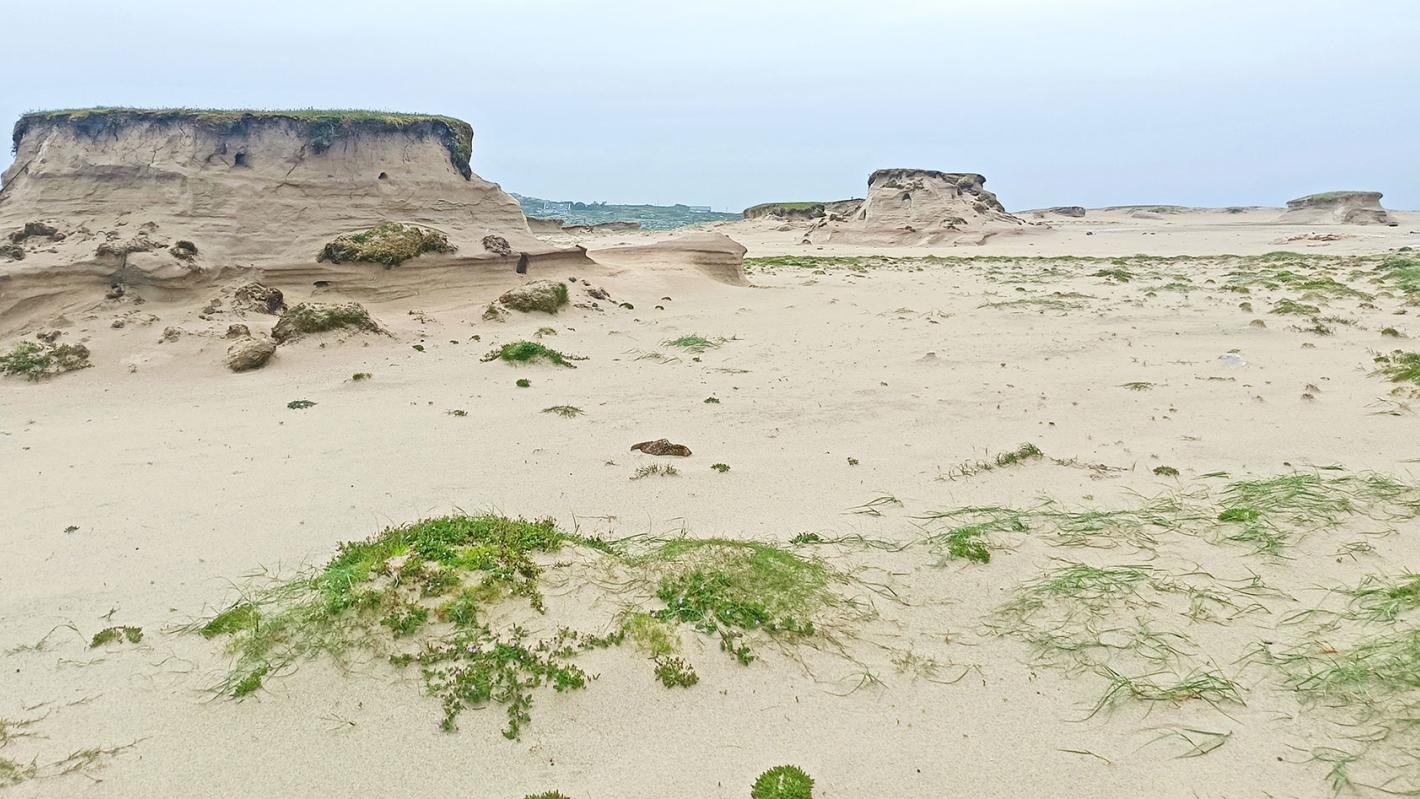
Storm damage to machair habitat.
ROD's ecology team is preparing guidelines and management plans for Fáilte Ireland as part of the EU-funded LIFE on Machair project
Fáilte Ireland has commissioned Roughan & O'Donovan (ROD) to produce guidelines and management plans for sustainable tourism at Machair sites across Ireland, with a focus on nine Special Areas of Conservation (SACs) and four Special Protection Areas (SPAs) in Co. Donegal, Co. Mayo and Co. Galway.
Our work forms part of the EU-funded LIFE on Machair (LOM) project, which aims to improve the conservation condition of Ireland’s ‘Machair’ habitats and the ecological conditions for breeding waders and pollinators within the target sites, which range from Connemara and South Mayo to Erris in northwest Mayo and Gweedore and Horn Head in Donegal.
The project is being coordinated by the Department of Housing, Local Government and Heritage through collaboration with the Department of Agriculture, Food and the Marine (DAFM), Fáilte Ireland and Teagasc. It will run for six years, from 2022 to 2028.
Machair is a coastal habitat unique to the north and west of Ireland and Scotland. Characterised by a species-rich grassland plain, developed on wind-blown sand, it provides an important refuge for pollinators and threatened breeding wader bird species, such as Dunlin, Lapwing and Redshank.
The typical flower-rich vegetation of machair is traditionally maintained through low-intensity livestock grazing, but it is susceptible to pressures from recreational activities and over grazing. Post Brexit, the entire EU land cover of machair occurs in Ireland. As such, its conservation is of significance on a European level.
ROD ecologists carried out site visits at each of the project sites in the summer of 2023. We also engaged in workshops with local community groups at each of the sites, some of which were conducted largely as Gaeilge.
The workshops were designed to scope out ways of reducing the negative impacts of recreational use on intensively used areas through the development of a sustainable tourism model. The feedback gathered at the workshops will feed into the guidelines and management plans being developed.
